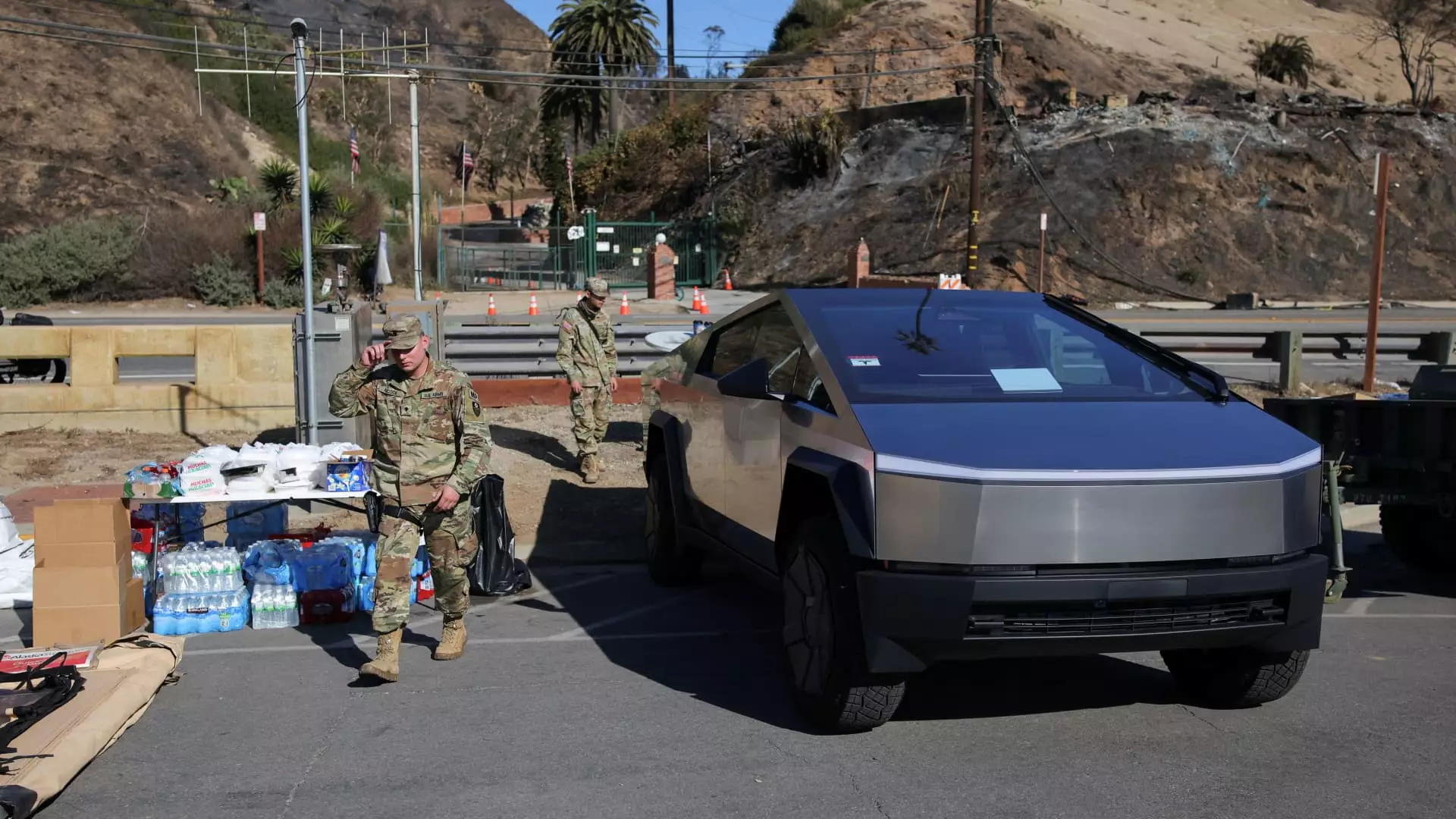Tesla is shaking things up in the electric vehicle (EV) market by rolling out discounts on its newly minted Cybertruck models. Recent listings show price reductions reaching as high as $1,600 for certain configurations and up to $2,600 for demo models in inventory. These discounts come amidst a backdrop of challenges for the Cybertruck, which has seen its production pace diminish at Tesla’s factory in Austin, Texas. As Tesla strives to boost sales and consumer interest, the decision to offer discounts signals both urgency and an acknowledgment of the market dynamics at play.
The once-anticipated Cybertruck, which began deliveries to eager customers in 2023 following its unveiling by CEO Elon Musk in 2019, has faced multiple obstacles. The stark, unpolished design that characterized its early promotional images has manifested into real production complexities. Tesla has struggled with slowed output at its Austin facility, raising concerns about whether the company can meet both consumer expectations and market demand. Despite Cybertruck sales reportedly surpassing the Ford Lightning F-150 last year, production hiccups and a concerning pattern of recalls have stymied growth and customer satisfaction.
Initially predicted to be priced near $40,000, the Cybertruck’s base price has soared to about $80,000 as of 2024. This steep price tag, coupled with continuous recalls—Tesla initiated its sixth recall within a year to address faulty drive inverters—has dulled its appeal. Wall Street had pegged the Cybertruck as a crucial growth catalyst for Tesla, but with its recent subpar performance and market challenges, these prospects seem dimmer. While Tesla continues to have robust sales figures in the EV sector, its units sold fell by approximately 37,000 compared to the previous year, showcasing a worrying trend that even the most recognized EV brand faces formidable competition in a rapidly evolving landscape.
The broader EV market thrived, with sales reaching 1.3 million units in the U.S. in 2024—an increase of 7.3% from the previous year. However, Tesla’s own numbers reflect a decline, indicating a loss of market share as new rival offerings flood the marketplace. Notably, while Tesla’s Model Y SUV and Model 3 sedan remain the best-selling EVs, even these seasoned models have experienced dips in sales. The Cybertruck, which sold around 38,965 units last year, has not emerged as the market leader many anticipated.
In a recent move to connect with customers, Musk extended apologies for the delays experienced by California customers awaiting their Cybertrucks. He explained that a portion of the truck fleet is being redirected for humanitarian purposes—acting as mobile base stations to provide Wi-Fi and power to areas affected by wildfires in Los Angeles. This public acknowledgment not only bridges the gap between the company and its customers but also places the Cybertruck in a unique position as a utility vehicle in crisis situations.
As Tesla navigates a tumultuous path marked with both hopes and hurdles, the future of the Cybertruck remains uncertain. The coming months will be critical as Tesla seeks to manage production, enhance consumer trust, and reignite its commanding presence in the competitive EV landscape.

